|
|
2018 GSR Annual Meeting
June 1-3, 2018
Ritz-Carlton, Amelia Island
Invited Guest Speakers
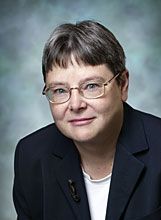
|
Michelle Petri, MD, MPH
Michelle Petri MD MPH pursued her medical degree at Harvard University, then completed her medical residency at Massachusetts General Hospital, Rheumatology fellowship at UCSF and joined Hopkins in 1986. She then obtained her MPH at the Hopkins School of Hygiene and Public Health. She is the director of the Hopkins Lupus Center and Professor of Medicine.
The Hopkins Lupus Cohort is a longitudinal cohort of SLE patients funded by NIH; it currently includes over 2,000 patients. The major outcome measures are prediction of disease activity, prevention of organ damage, and improvement in quality of life. The cohort has made important contributions to the understanding of corticosteroid toxicity in SLE, the preventive role of hydroxychloroquine and the pathogenesis of accelerated atherosclerosis.
The center also participates in clinical trials (playing an important role in the development of belimumab for SLE) and NIH-funded studies of the genetics of SLE, autoantibodies in SLE, and single cell studies of lupus kidney biopsies (the AMP project).
|
| |
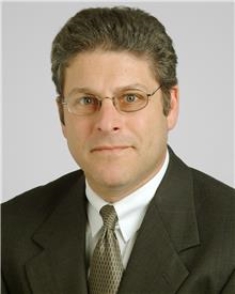
|
Brian Mandell, MD, PhD
Brian Mandell is chairman of academic medicine and a senior staff in Rheumatology and Immunologic Diseases, Center for Vasculitis Care and Research at the Cleveland Clinic in Cleveland, Ohio.
Dr. Mandell joined the Clinic in 1993 following a faculty appointment at the Hospital of the University of Pennsylvania. He previously earned a bachelor’s degree in Biology and a Ph.D. in Physiology and Biophysics from Washington University, St. Louis, Missouri, and then a medical degree from New York University School of Medicine. He trained in medicine and rheumatology at the University of Pennsylvania. He is board certified in internal medicine and rheumatology, and was awarded Mastership in the American College of Physicians.
He is currently editor-in-chief of the Cleveland Clinic Journal of Medicine and is a professor of medicine at the Cleveland Clinic Lerner College of Medicine of Case Western Reserve University. He is the director of the Cleveland Clinic Internal Medicine Residency Program’s Scholarly Activity Program and the Medicine Humanities Program. He is a graduate of the Stanford Faculty Development Program in clinical teaching.
Dr. Mandell has served on national education planning and writing committees for the American College of Rheumatology, the American Board of Internal Medicine and the American College of Physicians.
He has published over 100 articles, chapters, and editorials in peer-reviewed publications and textbooks relating to clinical and basic aspects of medical science. He has a special interest in gout as well as multi-system inflammatory diseases.
|
| |
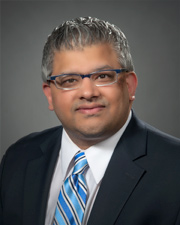
|
Amit Garg, MD
Amit Garg, MD, is an associate professor and the founding chair for the department of dermatology at Northwell Health. He is board certified in dermatology by the American Board of Dermatology.
Dr. Garg came to Northwell from Boston University Medical Center, where he directed the residency training program in dermatology as well as the undergraduate medical curricula in dermatology for the school of medicine. Dr. Garg has achieved international recognition as a skilled medical dermatologist, a thought leader in psoriasis and a medical educator.
Dr. Garg is codirector of the Rheumatic Skin Disease Clinic, an interdisciplinary clinic devoted to caring for patients with psoriasis, psoriatic arthritis, lupus, dermatomyositis and vasculitis among other interrelated skin and musculoskeletal diseases.
Dr. Garg’s research interests include developing instruments and assessing clinical and patient-centered outcomes in psoriasis. He has also developed innovative teaching strategies to improve training and education outcomes. Dr. Garg’s recent research has focused on improving teaching and assessment methods in undergraduate and graduate medical education. Dr. Garg narrows the practice gaps related to skin cancer examination by increasing awareness of high risk patient groups, promoting integration of the skin cancer exam into the routine or focused physical exam and enabling detection of suspicious pigmented lesions.
Dr. Garg has had leadership roles within prominent national professional organizations, including the American Academy of Dermatology, the American Board of Dermatology, the Association of Professors of Dermatology, the Medical Dermatological Society and the Group for Research and Assessment of Psoriasis and Psoriatic Arthritis. He is a member of Dermatology’s Residency Review Committee of ACGME. Awarded the 2016 Thomas G. Pearson, EdD, Memorial Education Award by the American Academy of Dermatology, Dr. Garg has published a number of articles in the peer-reviewed literature and has authored several book chapters. He has served on editorial boards for Journal of the American Academy of Dermatology, Journal of Clinical and Experimental Dermatology, and several American Academy of Dermatology–based publications. He is also the editor-in-chief of the forthcoming first edition book on rheumatic skin diseases. Dr. Garg has numerous invited lectures and publications to his credit.
|
| |
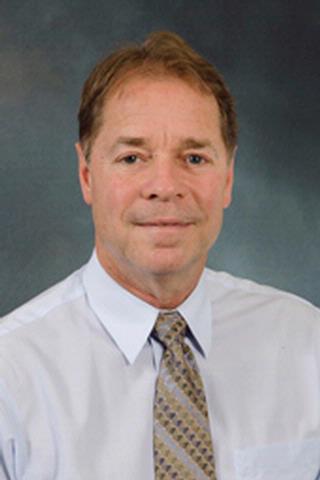
|
Christopher Ritchlin, MD
Dr. Ritchlin's basic science research efforts are directed towards understanding the mechanisms that underlie pathologic bone resorption and new bone formation in psoriatic arthritis and rheumatoid arthritis. Using a translational approach, investigators in his lab are analyzing the cell surface molecules expressed by osteoclast and dendritic cell precursors with the goal to identify susceptibility and response biomarkers in patients with inflammatory arthritis. The lab is also studying the effect of anti-TNF agents on dendritic cell differentiation in RA and PsA patients. In addition, collaborative studies are underway with the lab of Dr. Eddie Schwarz to understand the mechanisms that are responsible for bone marrow edema as recorded on magnetic resonance imaging scans in inflammatory arthritis. The bulk of this work is performed in animal models but insights gained from these studies are applied to the study of human joint diseases such as psoriatic and rheumatoid arthritis.
Dr. Ritchlin is also the Director of the Clinical Immunology Research Unit where he is the principle investigator on several
clinical trials testing the efficacy of anti-TNF agents and other biologic molecules in the treatment of psoriatic and rheumatoid
arthritis and ankylosing spondylitis. In the Clinical Immunology Research Unit, patient oriented research is conducted on multiple
levels. Investigator New Drug (IND) trials of novel agents (adalimumab, rituximab) in the treatment of PsA and AS have been completed
or are about to start. Additional trials have been performed to study the effect of TNF inhibition on the frequency of osteoclast
precursors and enhancing bone marrow edema in PsA. The Unit also conducts multicenter trials with novel biologic agents such as
rituximab and abatacept in PsA with special attention directed towards understanding how these agents alter bone remodeling in
these disorders. Additional studies underway include microanalysis assays of synovium, skin and intestinal tissues in patients
with Immune Mediated Inflammatory Disroders (IMIDs) before and after TNF inhibition. Future plans include the development of
ultrasound outcome measures in collaboration with Dr. Ralf Thiele and Dr. Darren Tabechian, to assess synovial, lymph node and
periarticular tissue responses to different therapies in inflammatory arthritis.
|
Invited Member Speaker
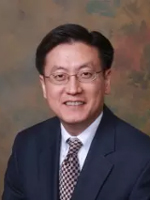
|
Sam Lim, MD, MPH
Dr. Lim, one of our very own GSR Members, received his undergraduate education at Duke University with a B.A. in Chemistry and his medical degree from the State University of New York at Brooklyn. He did his internal medicine training and rheumatology fellowship at Emory and remained on as faculty since 2002. He also has a MPH in epidemiology from the Rollins School of Public Health at Emory. He spends the majority of his clinical, research, and teaching time at Grady Memorial Hospital, an indigent care hospital that serves as Emory’s main teaching hospital. His main interest is outcomes and epidemiology of systemic lupus erythematosus. He is the PI of several grants, the largest of which is the CDC-funded Georgia Lupus Registry. This population-based registry will more accurately determine the prevalence and incidence of lupus in Atlanta. He is the director and primary clinician of the Grady Lupus Clinic, where over 400 patients are treated. He is the Center Director for the Emory site in the Lupus Clinical Trials Consortium and is involved in several lupus clinical trials. Dr. Lim is also the recipient of the American College of Rheumatology’s Clinical Investigator Fellowship Award.
Dr. Lim is involved in several research projects that seek to understand the epidemiology and outcomes of systemic lupus erythematosus, particularly as it impacts lower socioeconomic African-Americans. He hopes to continue this research program by furthering the success of the Georgia Lupus Registry and Grady Lupus Clinic.
Dr. Lim has a particular interest in lupus epidemiology and outcomes, especially as it relates to African-Americans and disparities. He is the PI of the CDC-funded Georgia Lupus Registry and several lupus clinical trials.
Dr. Lim is involved in teaching courses for the 2nd and 3rd year medical students, particularly topics related to lupus. He has regularly given talks to various departments, including Physical Therapy and Rehabilitation Medicine. He primarily is involved in clinical education at Grady Hospital to both Emory and Morehouse medical students, residents, and fellows.
He chairs the Early Career Subcommittee of the Faculty Development Committee in the Department of Medicine. He is also a member of the Faculty Development Committee itself. He sits on the Young Investigator Subcommittee of the Committee on Research (ACR) and is moderating a special session for young investigators at this year’s annual conference. He is on the Board of Directors of the Georgia Chapter of the Lupus Foundation of America and chairs the Medical Advisory Committee.
|
| |
|




